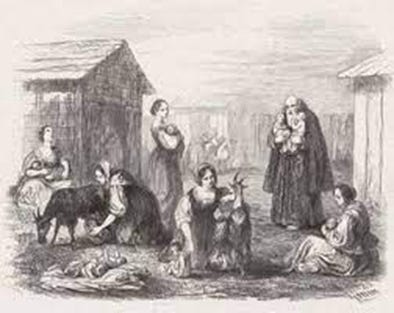Renzo enters the lazaretto, a place that can only be compared to Dante’s Inferno. At the outset Manzoni writes,
“I will not attempt to describe this scene in detail, nor would the reader want me to. Following our young man on his woeful journey, we will stop where he stops, and describe enough of what he witnessed to relate what he did, and what followed.”
Page 587. Goats mingling about, “acting as the nurses’ helpers.” A pastoral scene in the middle of the lazaretto.
Who should Renzo encounter but Padre Cristoforo, who admonishes him for his hatred of Don Rodrigo. An act of penance, of forgiveness, is required before the boy is allowed to go on.
“It may be punishment, or it may be mercy. What you feel now for this man who offended you is the same feeling that God—whom you, too, have offended—will have for you on the day of judgment. Bless him, and you shall be blessed.”
Join us on April 10 for a virtual discussion of The Betrothed with Michael F. Moore.







Interesting that at this point in the novel, none of the main characters have really changed: Cristoforo is still devout; Abbondio is still a coward; Renzo is still a loveable hothead. We’ll see about Lucia.
Only the nameless one has undergone a lasting conversion. I think it is one of the hopes of humankind that experience & tragedy will cause people to become better. Yet, Manzoni seems to repeatedly emphasize that, absent a true spiritual conversion, these things often just cause our real natures to shine through more.
Intense scene in lazaretto regarding suffering and forgiveness and the true meaning of love. Very appropriate for this Good Friday: “Would you remember that God did not tell us to forgive our enemies, but to love them? Would you remember that He loved him so much that he died for him?” Story has come almost full circle.